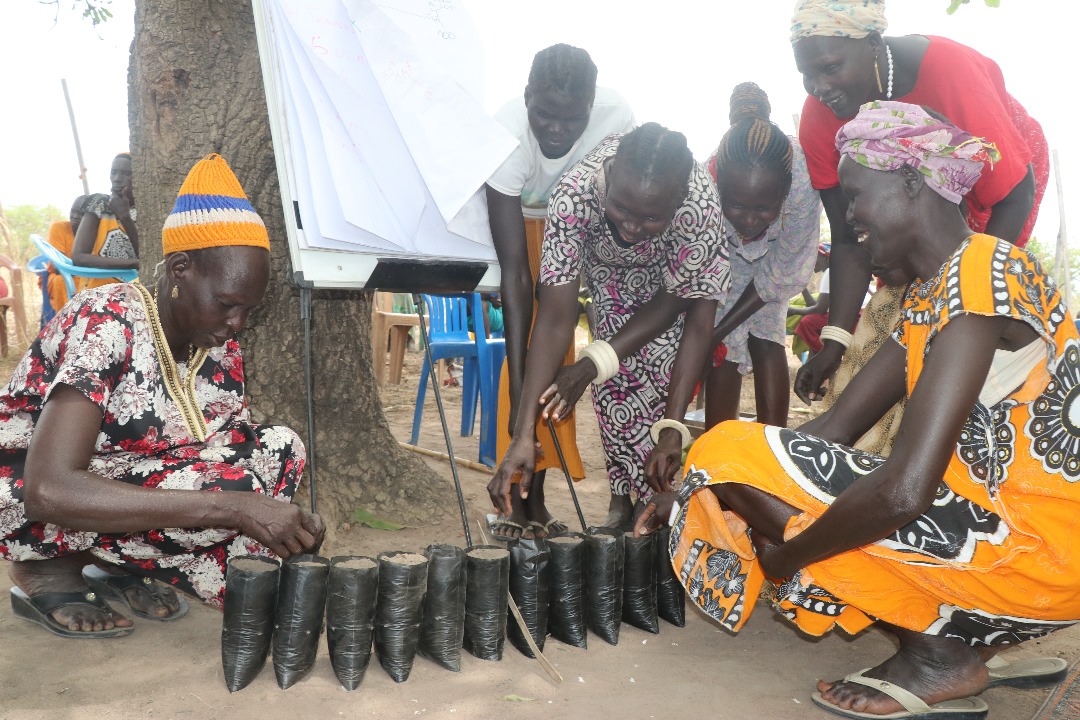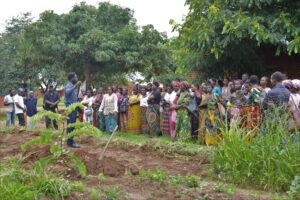
This year’s theme is focused on the role of education in ‘protecting and empowering youth for a disaster-free future’ (UN).
Thanks to your support we are empowering marginalised communities in projects in the global south which are centred around the theme of education and its ability to uplift and empower with climate action in mind.
It’s not news to anyone that because of climate change, extreme weather and natural disasters are on the rise jeopardising thousands of lives.
From recent hurricanes in the United States to unbearable temperatures experienced in central Europe and flooding – climate change is not unique to the global south and is growing more and more common.
Despite contributing the least to global warming, extreme weather in the global south because of climate change is an immediate and severe problem and young people especially, should we not act to reduce global temperatures and protect biodiversity, are at greater risk in the future.
In the places in which we work, marginalised communities rely on small-scale farming to feed and support their families, but such a way of life is increasingly difficult and leaving vulnerable communities even more vulnerable as they struggle to cope with environmental hardships.
In South Sudan, one of the poorest countries in the world, we are supporting women farmers to upskill and learn climate smart agriculture practices which can adapt to the harsh weather conditions they are facing.
This year alone, we trained 232 women in various workshops from nursey planting to water borehole management and maintenance via the MAJIS Agricultural college in Rumbek (read more on that project: here) to empower women in not only facing environmental challenges but to develop local knowledge built on sustainability and strengthening livelihoods too. Famine and food insecurity is quite literally life or death for these communities and coping mechanisms for drought or mass flooding and reducing risk through education is a crucial lifeline.

JCED Field officer Matthews gives agroforestry training to local farmers.
In Malawi, Cyclone Freddy brought huge destruction which uprooted and shook the lives of thousands damaging infrastructure, crops and livelihoods – inflicting great loss of life and injuries to people. Partnered with the Jesuit Centre for Ecological Development (JCED), we are supporting a number of projects focused on caring for our common home and sustainability through education.
The Tasinth Mlimi project, funded by Misean Cara, is focused on building resilience in vulnerable communities by way of improving food security whilst building grassroot knowledge of sustainable farming practices.
A big part of the project is to tackle deforestation and restore ecosystems for carbon sequestration which is a fancy term about the process in which CO2 and greenhouse gases can be captured and stored reducing the amount being released into our atmosphere.
The project is centred on practical farming workshops to build local knowledge with green and environmentally friendly farming practices to not only strengthen livelihoods but combat chemical fertilizers which pollutes waterways and harms wildlife.
All of these projects include outreach to young people to create future leaders in communities to advocate for climate action via green school initiatives so that such important skills in these farming communities can be passed down from generation to generation.
The project in just one year has empowered 1,433 farmers in Malawi and the Green Schools initiative is expanding outreach as the Malawi Government District Education Manager has endorsed the Green Schools Initiative, recommending its expansion district-wide sparking interest from others schools!
Your support has made lasting impact!
Schools have a critical role in promoting a culture of disaster prevention and empowering young people to understand and act on the risks they face but beyond grassroot education, at national and international levels, there needs to be real commitment to the safety and protection of those facing these climate shocks and disasters in the here and now.
You can learn more about the importance of Disaster Risk Reduction: here
And for more our sustainability and eco-projects, click here

